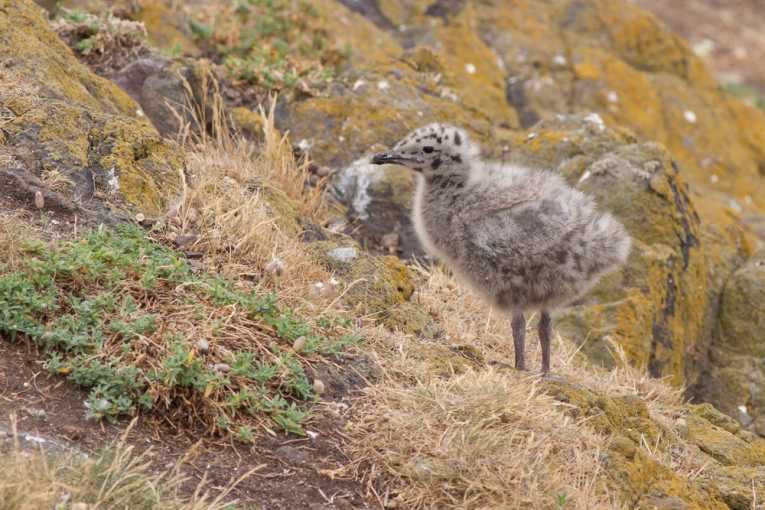Remember those days on the beach in the rock pools, dabbling in the clear water and under rocks. Those little crabs with long feathery hind legs include the swimming crabs, Polybius spp. and others.
Now the decapod (crabs, lobsters and shrimp) populations have soared in some areas of north-west Europe because of climate change, while some seabirds have been affected by this very abundance and had their own populations. All this has been documented by Richard Kirby, C. Luczak and several others from Universite Lille, Plymouth Marine Institute of Plymouth University and the Sir Alistair hardy Foundation for Ocean Science. They publish today in the Royal Society journal Biology Letters.
The North Sea is normally quite plankton-rich. However two increases in Sea Surface Temperature (abbreviated as SST) in 1989 and a longer increase after 1997 were coincident with a rise in the planktonic population of decapod larvae (zooeae larvae) and in their adults in the benthic populations. Some of the more pelagic crabs in particular have been able to increase their range and penetrated to the northerly parts of the North Sea.
As lesser black backed gulls feed on these crabs during the breeding season, they established one new colony and greatly increased their numbers of breeding pairs in Northern France and Belgium. In all, 34 species of swimming crab were found in this research, using the Continuous Plankton Recorder survey. Many of them increased near the enlarging colonies of the seabird, leading to the obvious conclusion. (ie. a correlation)

Credit: © Biology Letters
(Above) To indicate the change in adult swimming crabs (2000-1986) red shows a large increase while blue indicates a large decrease. Green represents a nil change the paper's graph also shows how sebird colonies have enlarged and propagated in exactly these areas opposite northern France and Belgium, off Denmark, near Heligoland island and to the east of Scotland.
Positive correlations between all of the involved parties and the increasing SST were very encouraging. It means the climate signal from each of the measurements has an appropriate time lag (3-4 years in some cases), as chicks grow and new generations take advantage of their bonus.
A species of crab also conquered new horizons in entering the North Sea permanently for the first time. Yellow-legged gulls are also involved, relying on crabs as a source of calcium while Balearic shearwaters have expanded their range in a similar way that involves their fish prey.
So the authors have established in one paper that two changes in the ecosystem have definitely taken place. Both the temperature affecting the larval crab in the plankton and the adult crab population affecting the lesser black backed gull colony are established arguments.
The link the birds bring between the marine environment where they fish and the terrestrial environment on which they nest is a vital clue as to the environmental effects. Nutrient input to coastal soils from the birds ensures that coastal ecology will also change, especially in those areas where the small crabs have "warmed" to their expanded habitats.

Gull with food; Credit: © Shutterstock
(Above)The adult Larus fuscus graelsii (black-backed gull) feeds on various fish and crustacea, but it feeds its young on swimming crabs and breeds especially close to suitable areas.










